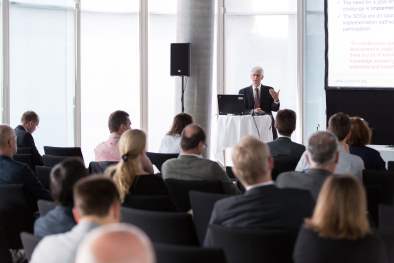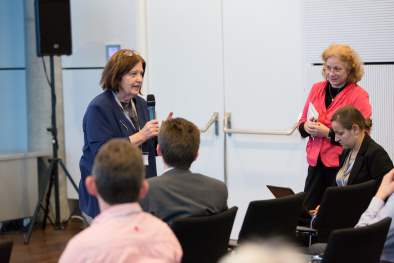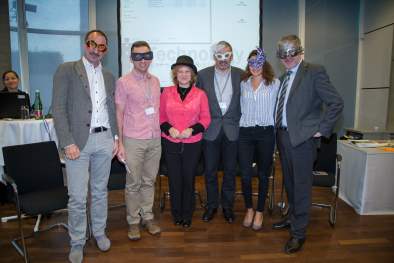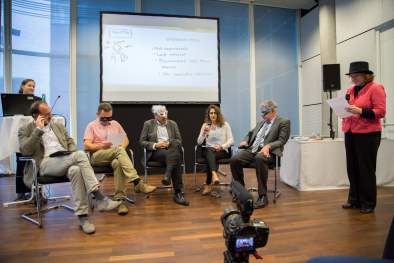Apart from practical aspects of river restoration and river management processes, this year’s ERRC examined the overall approach to integrated river basin management. One of the themes – building stakeholder dialogue and ensuring the bottom up and top down approaches – was explored in the GWP CEE session.
The session was chaired by GWP Senior Knowledge Management Officer Danka Thalmeinerova. She highlighted the importance of public participation in upcoming consultations on the second river basin management plans in 2015.
The session also included an official launch of the new GWP CEE video “Citizen Engagement for Water”. The video emphasises that water is a resource that needs to be used wisely, and that problems need to be solved together, through Integrated Water Resource Management (IWRM).
Experiences from national consultation dialogues on Water Sustainable Development Goals from Slovenia and Poland were presented by GWP CEE Chair Mrs. Martina Zupan, and GWP Poland Chair Mr. Tomasz Okruszko. Ms. Sabina Bokal, who is CEE Programme Manager for the Integrated Drought Management Programme (IDMP), shared lessons learned from Drought management national consultation dialogues which were run in 10 CEE countries.
GWP Senior Advisor Alan Hall highlighted the necessity of involvement of policy makers in the water dialogue. He presented a summary of the post 2015-development agenda and emphasized that water needs targets that are more comprehensive, however, at the same time it has been difficult to set up and measure targets.

UN Water provided technical advice to the Open Working Group, proposing a dedicated goal for water – securing sustainable water for all. Countries agreed that the proposed goal is fundamental within the post-2015 development agenda.
Great Interest
More than 200 people participated in the National Consultations on Water in the Post-2015 Development Agenda–phase II in Bulgaria, Poland, Romania and Slovenia in the first half of 2014.
Benedict Mandl, ICPDR’s Technical Expert on Public Participation and Communication, introduced the Danube River Basin, which is very diverse in terms of economic and social development and ecosystems. “Public participation saves time and resources and it is legally binding” said Mr. Mandl, who has vast experience in public participation and stakeholders’ involvement in ICPDR.

In the very lively discussion at the GWP CEE session some important questions were raised, like how to manage stakeholders’ expectations, especially in trans-boundary projects; how to sustain the participatory process in the future; how to manage participation processes in countries of such diversity as in the Danube River Bain, developing and ensuring the bottom up and top down approaches and their combinations, and others. The EEA report “Public participation: contributing to better water management” was discussed, as well as details who needs to talk to whom and the transparency of the process.
In an attempt to challenge and encourage the audience to participate, GWP CEE created and presented a one-act Play entitled 'On stakeholder involvement and participation - going beyond stereotypes'. It was an interactive play aiming to discuss the challenges related to communication and stakeholder involvement, and provide an insight into how these can be overcome. The play focused on stereotypes as the main obstacle in communication and cooperation.
In order to provide a balanced view on the issue of stereotypes, five participants from different sectors were asked to be actors and discuss the main stereotypes they face. With a great mix of actors representing the private sector, donor agencies, policymakers, the youth and scientists, the play provided a lively variety of views, with some stereotypes shown to indeed be oversimplified and judgmental views, while others were accepted as true problems that need to be addressed.

The opinions of the actors also triggered participation from the audience, discussing issues such as the form of communication - written, spoken or pictorial - and the wording and decoding of messages. This atypical and intriguing performance helped the audience and the participants to consider the problem of stereotypes, both those they face and those they assign to others, and the session encouraged them to deal with issues openly.
